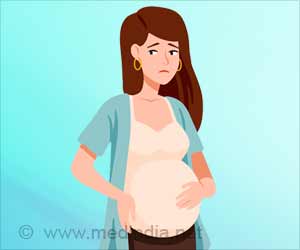Heart health scores for gay and bisexual men were 2.72 and 0.83 points superior, respectively, compared to heterosexual men.

Sexual Minority Status Disparities in Life's Essential 8 and Life's Simple 7 Cardiovascular Health Scores
Go to source). The results are from a study that noted disparities in heart health among sexual minority adults in France as measured by both the American Heart Association’s Life’s Essential 8 and Life’s Simple 7 metrics for ideal cardiovascular health.
‘Gay and bisexual men are more likely to have best cardiovascular health scores compared to their heterosexual male peers.’





The study is the first to evaluate cardiovascular health disparities among people who identify in a sexual minority group, defined in this research through self-reported lifetime sexual behavior, categorized as lesbian, gay, bisexual or heterosexual. It’s also likely the first study to examine cardiovascular health among sexual minority groups with the American Heart Association’s cardiovascular health metrics. Life’s Essential 8 was updated in 2022 to add healthy sleep as a cardiovascular health factor in addition to the original 7 metrics in Life’s Simple 7: healthy diet; regular physical activity; no smoking; healthy weight; and normal blood sugar, cholesterol and blood pressure levels.
Exploring the Link Between Lesbian Women and Heart Health
“Improving these metrics is a great opportunity to prevent heart problems before they happen,” said lead study author Omar Deraz, D.M.D., M.P.H., Ph.D.-candidate affiliated with Université Paris Cité, Inserm (French National Institute of Health and Medical Research) and the Paris Cardiovascular Research Center’s Integrative Epidemiology of Cardiovascular Disease Team. “We wanted to see if there are differences in Life’s Essential 8 cardiovascular health scores in sexual minority individuals, including gay, lesbian and bisexual adults, compared to heterosexual individuals."“Improving cultural competency and awareness of cardiovascular disease risk among sexual minority adults may help to improve conversations between doctors and patients about cardiovascular health, including prevention and management,” Deraz said. “Understanding and overcoming barriers to health care access are essential to improve cardiovascular disease prevention and care in sexual minorities.”
Prior research has shown that sexual minority adults are less likely to access health care and more likely to delay health care than heterosexual adults, according to the study.
The research analyzed health data for more than 169,400 adults (average age 46 years; 54% women) without cardiovascular disease who had participated in a nationwide study in France called CONSTANCES (CONSulTANts des Centres d’Examens de Santé). The study, which examined risk factors of chronic disease and aging including cardiovascular disease, randomly recruited participants from 2012 to 2020. Participants attended one of 24 health centers in 21 cities distributed over the French European territory, where they underwent clinical examination and laboratory tests at the beginning of the study and then every four years.
Among the nearly 91,000 women participating in the study, 93% identified as heterosexual; about 3.5% identified as bisexual; and less than 1% (0.61%) identified as lesbian. Among more than 78,550 men in the study, 90% identified as heterosexual; 3.5% identified as bisexual; and 3% identified as gay. About 3% of women and 3% of men declined to answer questions about their sexual behavior. After adjusting for several factors including family history of cardiovascular disease, age and social factors, the analysis found:
- When cardiovascular health was scored using Life’s Essential 8 metrics, lesbian and bisexual women had significantly lower cardiovascular health scores compared to heterosexual women, 0.95 and 0.78 points lower, respectively. However, among women who were ever pregnant, lesbian women had higher cardiovascular health compared to heterosexual women.
- Sexual minority men living in rural areas, however, had lower cardiovascular health scores (average Life’s Essential 8 score roughly 61) compared to their urban dwelling peers (average Life’s Essential 8 score about 66) and were less likely to attain ideal cardiovascular health compared to their heterosexual counterparts.
- Compared to heterosexual women, lesbian women had lower scores for healthy diet and healthy blood pressure levels, as measured by Life’s Essential 8. In contrast, bisexual women had higher scores for healthy diet and also higher scores for nicotine exposure.
- When measured using Life’s Simple 7 metrics, cardiovascular health scores were consistent with Life’s Essential 8 scores among all participant groups, though the differences were smaller.
The study notes that previous evidence observed that sexual minority populations disproportionately experience mental health conditions, such as depression and suicide attempts, which have been linked to higher cardiovascular disease. Additionally, bias-motivated discrimination and violence, plus increased societal stressors, may lead to unhealthy coping behaviors, such as increased alcohol use, smoking and a sedentary lifestyle.
In this study, demographic and social determinants of health among lesbian, bisexual and gay participants were assessed in comparison to heterosexual participants:
- On average, sexual minority adults were younger; less likely to be self-employed or work in a managerial position; had higher education levels described as at least two years of education beyond high school; less likely to live with a partner; more frequently lived in poverty or in urban areas; and more frequently had patterns of drinking excess alcohol compared to their heterosexual peers.
- Sexual minority adults more frequently reported mental health conditions, such as anxiety disorders, depression symptoms, taking prescription medications for depression or a history of suicide attempts than heterosexual adults. However, lesbian women less frequently reported anxiety disorders and depression symptoms compared to heterosexual women.
A 2020 American Heart Association scientific statement “Assessing and Addressing Cardiovascular Health in LGBTQ Adults,” noted that LGBTQ adults experience significant psychosocial stressors that compromise their cardiovascular health across the life span (2✔ ✔Trusted Source
Assessing and Addressing Cardiovascular Health in LGBTQ Adults
Go to source).
The findings of this study should not necessarily be generalized to other countries because France is a high-income country with universal health care insurance. Other limitations included the study’s single focus on assessing cardiovascular health by sexual minority identification; and that it did not include data on cardiovascular health for those who identified as transgender because no data were available at the time of the study, researchers said.
“Although this data may not be fully applicable to other countries, it’s important research into a population that is grossly underrepresented in clinical and epidemiological studies,” said volunteer chair of the American Heart Association’s 2023 Statistical Update writing group Connie W. Tsao, M.D., M.P.H., FAHA, an assistant professor of medicine at Harvard Medical School and attending staff cardiologist at Beth Israel Deaconess Medical Center in Boston.
“To fully address discrimination and disparities that impact health, we must better recognize and understand the unique experiences of all individuals and populations including sexual minorities,” Tsao said. “This year’s Statistical Update writing group made a concerted effort to include the limited research on social and demographic factors related to health risk and outcomes, including sexual orientation and gender identity. We are hopeful that studies like this one will help to fill this gap in our knowledge about cardiovascular health among sexual minority populations, which is essential to the American Heart Association’s mission to improve cardiovascular health equity for all people.”
Deraz and co-authors suggest that future research should include social demographics, such as sexual orientation, sex, gender identity and gender expression; and continue investigating the association between cardiovascular health scores and heart disease risk among sexual minority populations.
References:
- Sexual Minority Status Disparities in Life's Essential 8 and Life's Simple 7 Cardiovascular Health Scores - (https://www.ahajournals.org/doi/10.1161/JAHA.122.028429)
- Assessing and Addressing Cardiovascular Health in LGBTQ Adults - (https://www.ahajournals.org/doi/10.1161/CIR.0000000000000914)














